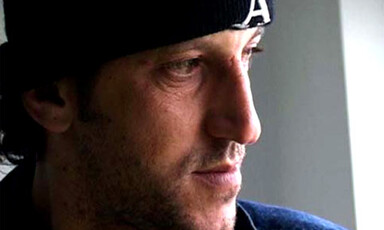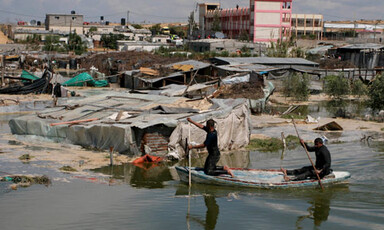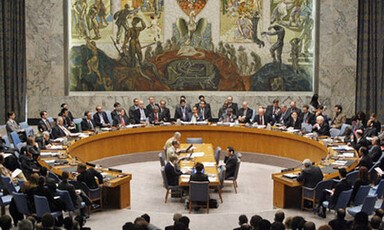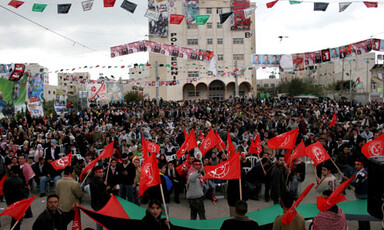
Violence or nonviolence? Two documentaries reviewed
9 April 2007
When she hijacked two planes over thirty years ago, refugee Leila Khaled helped put the Palestinian struggle on the international radar. A generation later, however, the realization of Palestinians’ rights is elusive as ever and the tactics of their resistance are increasingly scrutinized. The limits of resistance are examined in Ronit Avni and Julia Bacha’s documentary Encounter Point as well as Lina Makboul’s Leila Khaled, Hijacker. Read more about Violence or nonviolence? Two documentaries reviewed








